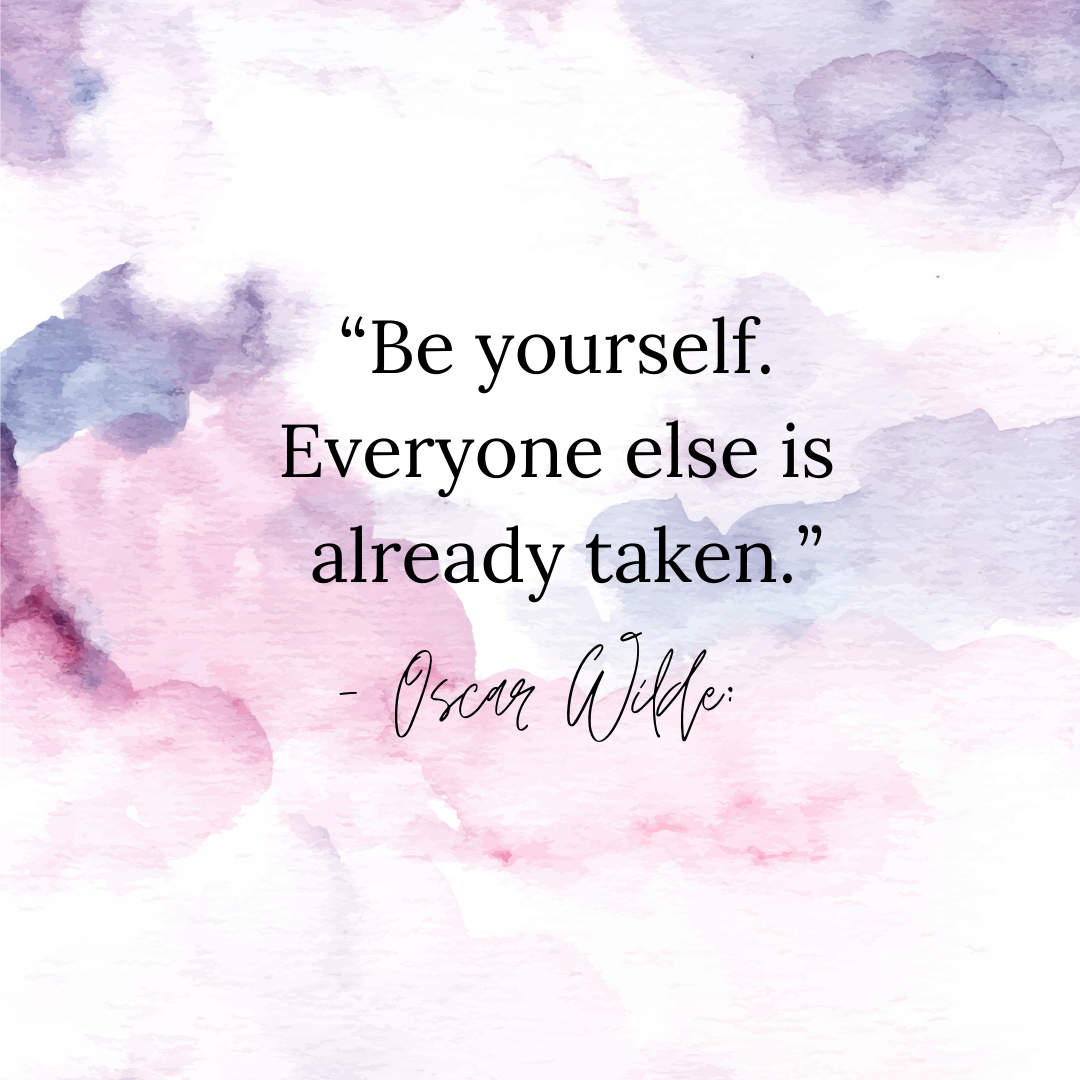The one piece of advice I’d give to everyone

Recently, I’ve been asking and pondering life’s big questions. One I’ve really enjoyed mulling over is:
What piece of advice would you give your younger self?
The older I get, the more wisdom I acquire from the experiences I have. Having children has also motivated me to consider the most helpful advice I would not only pass onto my younger self, but also my kids. Whether or not they choose to follow it is an entirely different matter!
The pieces of advice that initially popped into my head when I began to ponder this question were: be kind, be generous, be honest, be loyal, and, there is no such thing as failure, just lessons, among many others.
Picking one piece of advice was TOUGH. So, I narrowed it down to the piece of advice that would apply to everyone, and have the most impact on ALL areas of our life, until I eventually landed on Love Yourself.
I thought this was the most powerful piece of advice, because the way we love ourselves impacts the way we love others. Loving yourself is also linked to self-confidence, and ultimately the way we let others treat us.
Let’s unpack the concept of self-love a little further by firstly defining what self-love actually is.
Self-love can often be misconstrued as conceited, vain or arrogant. In the context of how I will be discussing self-love today, I define self-love as self-worth by valuing and respecting oneself. Self-love can sometimes be negatively perceived as “selfish”. I believe you do have to be selfish by putting yourself first, but I don’t believe this is necessarily a negative action. Self-love means not devaluing or sacrificing oneself for the gain of others, or to the detriment to oneself. When it comes to self-love, being selfish is a good thing, despite what society has conditioned us to believe.
When we demonstrate self-love, we accept ourselves as we are, and embrace our faults and strengths equally. We are accepting of our appearance and our disposition. Even if we don’t accept our circumstances, we understand that we are doing the best we can with what we have available to us at this moment.
Let me share a personal example with you. I was born with very fair skin. My skin burns easily in the sun, and doesn’t tan. As a result, I don’t enjoy hot climates or spending hours in the sun. As a child and teenager, I was envious of my friends who would all have a tanned, healthy glow in summer and could spend hours on the beach or swimming without succumbing to sunstroke. I dabbled with self-tanning products, but it was the 90s, and these just made me look orange!
When I was 18, I travelled to the UK and discovered that due to the climate (and genetics!) many European people had fair complexions like mine. Having found my “people”, and no longer standing out like a sore thumb, I moved my focus from tanning to taking care of my skin. I religiously began moisturising and using sunscreen in the hope I’d have less wrinkles, sun spots, and skin cancer as I aged. So far, this strategy has served me well. I get my skin checked annually, and have had minimal issues so far…I blame any wrinkles on my children, and not my skincare regime!
Because I am fair, I also tend to cover up my skin more than most to prevent sunburn. This has resulted in me wearing longer dresses, as opposed to shorts. I’ve discovered I love wearing dresses. They are so comfortable, and channel my feminine energy. My fair skin has also meant that I enjoy loving in cooler climates with seasons, especially winter. I thoroughly enjoy spending time outdoors in winter when I know my skin won’t fry. I embrace my fair skin much more than I used to, as I can see the way it has positively shaped my life through the choices I’ve made about how I care for my skin, what I wear, and the places I feel comfortable living.
I love that our “perceived” flaws can become the things that challenge us and create experiences that become life lessons, or form part of our identity.
What flaws do you have that you’ve been able to embrace and accept as part of your identity?
Self-love also gives us the confidence to back ourselves when it comes to our passions, so we can realise our life’s purpose; by helping others, or having a positive impact on the world around us. A great example of someone who has fearlessly pursued their life’s passion is wildlife conservationist, Steve Irwin. If you ever visit the Australia Zoo on Australia’s Sunshine Coast, I highly recommend watching the Wildlife Show.
The highlight of the show is of course the crocodiles, for which Steve Irwin was best known, as well as a number of other native Australia animals, including beautiful birds. However, it was the end of the show that really struck a chord with me. At the conclusion of the show, a video tribute to Steve Irwin is played on the big screen and features Steve sharing his passion for wildlife conservation. It is truly captivating, and gives me shivers to see someone so acutely aware of their mission in life. I’ll put a link to the video in the show notes and encourage you to watch it. Whilst Steve’s premature death was a tragedy, it is heartening to think that he died doing what he loved more than anything else in the world.
I encourage you to love yourself enough to pursue your passions fiercely and relentlessly. Who knows who could help, and what positive impact you could have on the world as a result of your passion being actioned.
Without loving ourselves first and foremost, I don’t believe it is possible to love others as deeply and vulnerably as we have the potential to. Without self-love, our relationships become focused on benefiting the other person, or how they can “complete” us in the ways we believe we aren’t whole. But the truth is, we’re “whole” already, and don’t need anyone else to complete us. Once we understand this concept, we release many of the expectations we had of relationships. Our relationships become freer and easier, because we are not using the other person as “crutch”. We enter into relationships simply because we enjoy the company of the other person.
The other benefit that comes from loving yourself is having self-respect and being able to set boundaries. Boundaries can be set for a number of reasons: to protect our time, as well as our energy and emotional state. I believe that it is challenging to set boundaries until we can see our full worth, and value how precious our time and emotions are. People will take advantage of you every day of the week if you give them the opportunity. Not because they are “bad” people, but because you simply make their life easier by doing things for them, solving their problems, or making them feel better about themselves.
Our children are classic examples. My son is 9 and will happily let anyone in the house make him toast and Weetbix all day long. He is perfectly capable of doing these things for himself, but why would he when he can get someone else to do it? After teaching him how to do these things, this year, we have now set an expectation (or boundary) that he needs to do these things himself.
I’d like you to recall a time when you felt someone has taken advantage of you. This could be a boss dumping a last-minute deadline on you, a colleague not pulling their weight, or that friend who’s always asking for a favour, but is never available when you need them. How did it make you feel?
Now view this same situation through a lens of self-love. Imagine how you’d react in the same situation if you put yourself first. What would you say or do differently? What do you think the outcome would be in this scenario?
The interesting thing about these situations is that you don’t need to be rude or dismissive of other people. You can say “no” politely. For example, “I’d love to be able to assist, but on this occasion I am not able to help with that.” You don’t even need to give an excuse to justify why you can’t help.
These are just a few examples of the positive impact self-love can have in our lives, but there are many more that you will encounter throughout your lifetime.
Self-love underpins our entire existence. We are all exquisite individuals, put on this earth to serve a purpose and tread our own special path, encountering unique experiences that help us grow and develop at a soul level. I encourage you to embrace every facet of yourself – perfections and imperfections included – and use the unique gifts you have been given to reach your full potential in this lifetime.
I’ll close with this classic quote from Oscar Wilde: “Be yourself. Everyone else is already taken.”
